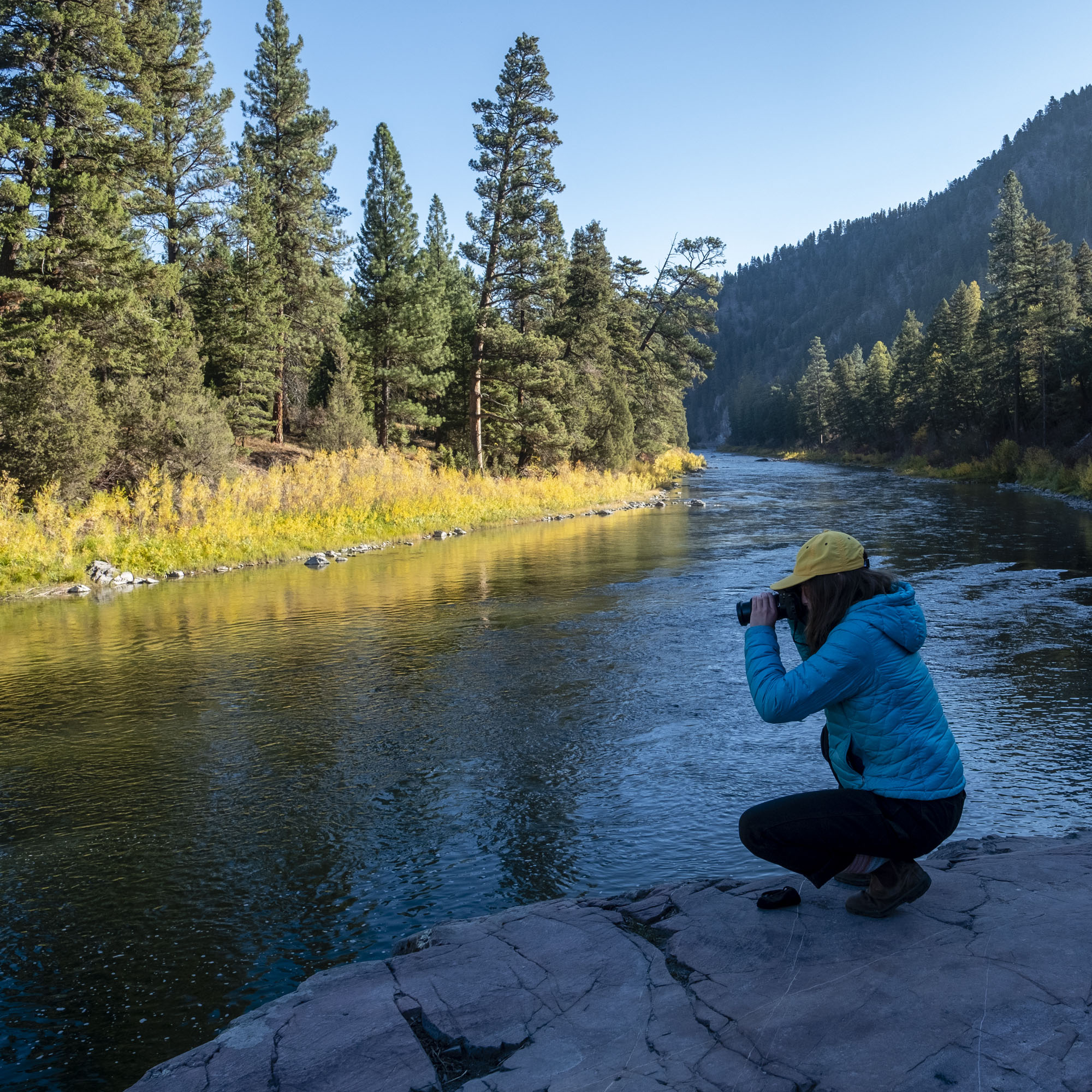Master's Program in Environmental Science and Natural Resource Journalism
Bring your future into focus with a master’s degree in Environmental Science and Natural Resource Journalism at the University of Montana.
The School of Journalism’s graduate program is a hands-on, skills-based program that puts students in the field reporting on issues affecting society and the natural world.
We welcome a new cohort each fall. Priority deadline for applications is Feb. 15 and applications are accepted until April 15.
The master's program is an advanced curriculum for applicants with undergraduate degrees in journalism, environmental and earth sciences, environmental studies or natural resources. We also seek applicants with professional experience in journalism, the natural resource industries and environmental nonprofit organizations.
Our students make media that matters.
Their writing, reporting, photography, video and audio work is published and aired across the region and around the globe, appearing in publications like High Country News, Natural History Magazine, Civil Eats, the Washington Post and on Montana Public Radio and NPR Morning Edition, just to name a few.
You can meet some of our students here.
Our students make connections that matter.
You’ll get personal attention and gain valuable connections at the Journalism School. Our faculty members have decades of professional journalism experience and deep ties in the natural resource and media worlds.
One shining example of graduate students "learning by doing" and building connections is the Crown Reporting Project, which supports graduate students as they pursue stories in Northwest Montana and Canada – the “Crown of the Continent.” The program’s goal is to inform public understanding of landscape-level conservation, conflicting demands for natural resources and community efforts to build climate resilience. Students head into the field backed by a mentor -- a veteran journalist familiar with their area of work. The Crown Reporting Project bridges journalism, science, policy and conservation, helping students develop specialized expertise that can lead to careers in science or environmental journalism.
Our students gain skills that matter.
The media landscape is changing quickly but our students learn the skills to lead in the new media landscape. Video, podcasting, design, documentary, social media – our students learn how to tell impactful stories across platforms and for a variety of audiences. At the heart of it all is storytelling and reporting.
Take for example the Story Lab course, which pairs students with scientists for one semester. The goal is for emerging journalists to learn how to better communicate science news; scientists also learn how to interact with the media to better tell their stories. The University of Montana is home to cutting-edge research, from wildlife biology to fire management and environmental health. We like to call our backyard the greatest outdoor laboratory on the planet.
We offer scholarships, fellowships and teaching assistantships to assist graduate students. Financial aid and work-study packages are also available. Take a look at our website, send us an email or call us if you have any questions.
Applications are reviewed until April 15. We look forward to your application.
Contact program director Nadia White to chat about if this program might be right for you:
- Office: DAH 408
- Phone: (406) 243-2227
- Email: nadia.white@umontana.edu
